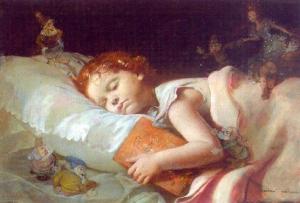A History of Domestic Manners and Sentiments in England During the Middle Ages
Nonfiction, Religion & Spirituality, New Age, History, Fiction & Literature| Author: | Thomas Wright | ISBN: | 9781465627117 |
| Publisher: | Library of Alexandria | Publication: | March 8, 2015 |
| Imprint: | Language: | English |
| Author: | Thomas Wright |
| ISBN: | 9781465627117 |
| Publisher: | Library of Alexandria |
| Publication: | March 8, 2015 |
| Imprint: | |
| Language: | English |
Much has been written at different times on the costume and some other circumstances connected with the condition of our forefathers in past times, but no one has undertaken with much success to treat generally of the domestic manners of the middle ages. The history of domestic manners, indeed, is a subject, the materials of which are exceedingly varied, widely scattered, and not easily brought together; they, of course, vary in character with the periods to which they relate, and at certain periods are much rarer than at others. But the interest of the subject must be felt by every one who appreciates art; for what avails our knowledge of costume unless we know the manners, the mode of living, the houses, the furniture, the utensils, of those whom we have learnt how to clothe? and, without this latter knowledge, history itself can be but imperfectly understood. In England, as in most other countries of western Europe, at the period of the middle ages when we first become intimately acquainted with them, the manners and customs of their inhabitants were a mixture of those of the barbarian settlers themselves, and of those which they found among the conquered Romans; the latter prevailing to a greater or less extent, according to the peculiar circumstances of the country. This was certainly the case in England among our Saxon forefathers; and it becomes a matter of interest to ascertain what were really the types which belonged to the Saxon race, and to distinguish them from those which they derived from the Roman inhabitants of our island. We have only one record of the manners of the Saxons before they settled in Britain, and that is neither perfect, nor altogether unaltered—it is the romance of Beowulf, a poem in pure Anglo-Saxon, which contains internal marks of having been composed before the people who spoke that language had quitted their settlements on the Continent. Yet we can hardly peruse it without suspecting that some of its portraitures are descriptive rather of what was seen in England than of what existed in the north of Germany. Thus we might almost imagine that the “street variegated with stones” (stræt wœs stân-fáh), along which the hero Beowulf and his followers proceeded from the shore to the royal residence of Hrothgar, was a picture of a Roman road as found in Britain.
Much has been written at different times on the costume and some other circumstances connected with the condition of our forefathers in past times, but no one has undertaken with much success to treat generally of the domestic manners of the middle ages. The history of domestic manners, indeed, is a subject, the materials of which are exceedingly varied, widely scattered, and not easily brought together; they, of course, vary in character with the periods to which they relate, and at certain periods are much rarer than at others. But the interest of the subject must be felt by every one who appreciates art; for what avails our knowledge of costume unless we know the manners, the mode of living, the houses, the furniture, the utensils, of those whom we have learnt how to clothe? and, without this latter knowledge, history itself can be but imperfectly understood. In England, as in most other countries of western Europe, at the period of the middle ages when we first become intimately acquainted with them, the manners and customs of their inhabitants were a mixture of those of the barbarian settlers themselves, and of those which they found among the conquered Romans; the latter prevailing to a greater or less extent, according to the peculiar circumstances of the country. This was certainly the case in England among our Saxon forefathers; and it becomes a matter of interest to ascertain what were really the types which belonged to the Saxon race, and to distinguish them from those which they derived from the Roman inhabitants of our island. We have only one record of the manners of the Saxons before they settled in Britain, and that is neither perfect, nor altogether unaltered—it is the romance of Beowulf, a poem in pure Anglo-Saxon, which contains internal marks of having been composed before the people who spoke that language had quitted their settlements on the Continent. Yet we can hardly peruse it without suspecting that some of its portraitures are descriptive rather of what was seen in England than of what existed in the north of Germany. Thus we might almost imagine that the “street variegated with stones” (stræt wœs stân-fáh), along which the hero Beowulf and his followers proceeded from the shore to the royal residence of Hrothgar, was a picture of a Roman road as found in Britain.















